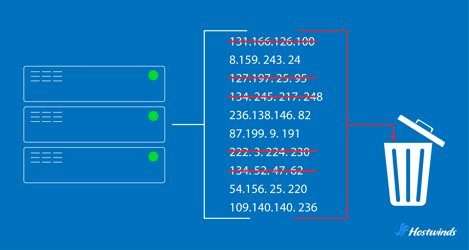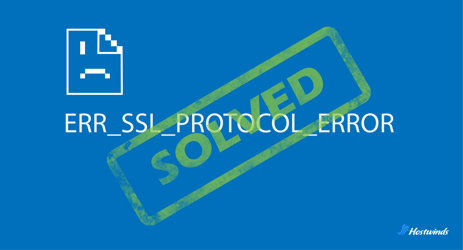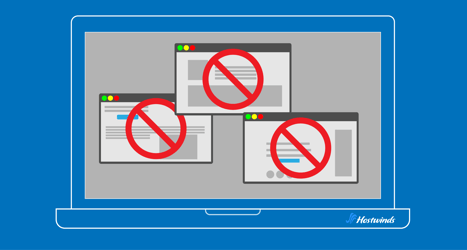Hostwinds Blog
Search results for:
Page 3 of the Latest Blog Posts

by: Hostwinds Team / March 26, 2025
If you've ever browsed a website or sent emails, chances are you've benefited from SSL or TLS protocols. These cryptographic protocols secure data transmission over the internet. Let's take a look at how these protocols came to be and learn why TLS has taken over SSL as the...

by: Hostwinds Team / March 18, 2025
What is eCommerce Security? eCommerce security refers to the measures and protocols designed to protect online stores, customer data, and financial transactions from cyber threats. It encompasses data encryption, secure payment processing, fraud prevention, and compliance...

by: Hostwinds Team / March 12, 2025
What Is DNS Scavenging? DNS scavenging is a process that automatically removes stale DNS records from a DNS server. When devices connect to a network, they register their IP addresses in the DNS server. Over time, some of these records become outdated if devices are removed...

by: Hostwinds Team / March 5, 2025
Experiencing minor glitches or slowdowns on your iPhone? A simple cache clearing might be the solution! Follow this step-by-step guide to easily clear your iPhone's cache and get it running smoothly again... What is Cache? Cache is a temporary storage system that helps speed...

by: Hostwinds Team / February 21, 2025
What Is an HTTP 504 Gateway Timeout Error? An HTTP 504 Gateway Timeout is an error that occurs when a server acting as a gateway or proxy does not receive a response from an upstream server within the expected timeframe. This means that an intermediary server—such as a...

by: Hostwinds Team / February 11, 2025
Whether you're trying to browse a website or you're managing one, the ERR_SSL_PROTOCOL_ERROR can be a frustrating experience. This error indicates a failure in establishing a secure connection, often caused by issues with SSL/TLS encryption settings or certificates. Let 's...

by: Hostwinds Team / January 31, 2025
When managing a website, you're bound to encounter various errors that can affect user experience and search performance. One error type that often causes confusion is the "soft 404 error." While it may sound similar to a standard 404 error, it functions differently and can...

by: Hostwinds Team / January 21, 2025
It's easy to get distracted by the endless array of websites at our fingertips. Whether you're trying to focus on work, create a safer browsing environment for your kids, or avoid specific online distractions, learning how to block a website on your browser is a handy skill....
